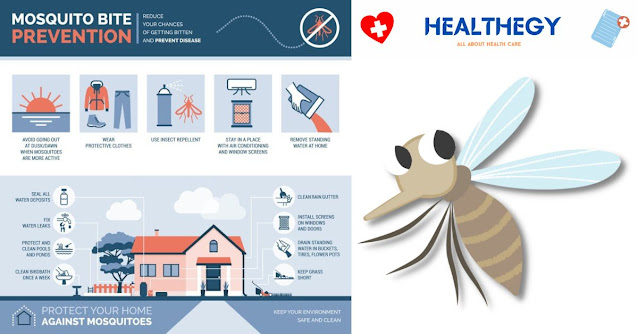Know about Malaria
Malaria is a life-threatening disease caused by parasites that are transmitted to people through the bites of infected female Anopheles mosquitoes. In 2020, estimated 229 million cases of malaria occurred worldwide, and around 409,000 people died from the disease.
Malaria is a potentially life-threatening disease caused by parasites that are transmitted to humans through the bites of infected female Anopheles mosquitoes. There are several species of the malaria parasite, with Plasmodium falciparum being the most deadly.
When an infected mosquito bites a person, it injects malaria parasites into the bloodstream. These parasites then travel to the liver, where they multiply and mature. After several days, the parasites enter the bloodstream and invade red blood cells, where they continue to multiply. The infected red blood cells eventually burst, releasing more parasites into the bloodstream, which can then infect other red blood cells.
The symptoms of malaria usually begin 7 to 30 days after the infected mosquito bite.
Common symptoms include
- Fever,
- Chills,
- Headache,
- Muscle Aches,
- Fatigue, and Nausea.
In severe cases, malaria can cause complications such as anemia, kidney failure, seizures, and coma. Pregnant women, young children, and individuals with weakened immune systems are at a higher risk of developing severe malaria.
Malaria is a widespread disease, and it is prevalent in many tropical and subtropical regions of the world. According to the World Health Organization, in 2020, there were estimated 229 million cases of malaria worldwide, and 409,000 people died from the disease.
In addition to the human toll, malaria also has significant economic impacts. The disease can lead to lost productivity, increased healthcare costs, and decreased tourism in affected regions. Therefore, efforts to prevent and treat malaria are essential for both public health and economic stability.
Malaria Treatment
Early diagnosis and prompt treatment are crucial to preventing complications and death from malaria. The World Health Organization (WHO) recommends that all malaria cases be confirmed by laboratory testing before treatment is initiated.
The choice of antimalarial medication will depend on the severity of the illness, the species of the infecting parasite, and the patient's age and pregnancy status. In general, the most effective antimalarial drugs include artemisinin-based combination therapies (ACTs), which are used to treat uncomplicated malaria, and intravenous artesunate, which is used to treat severe malaria.
In addition to medication, supportive care is also essential for managing the symptoms of malaria. This may include treatment for fever, pain, and dehydration. In severe cases, hospitalization may be necessary for close monitoring and intravenous fluids, as well as blood transfusions in the case of anemia.
Also read about respiratory distress syndrome
Malaria Prevention and Control
Prevention is the most effective way to avoid contracting malaria. The following strategies can help reduce the risk of infection:
Use insecticide-treated bed nets: Bed nets treated with insecticide are a highly effective way to prevent mosquito bites while sleeping.
Apply insect repellent: Use insect repellent containing DEET or other effective ingredients when outdoors or in areas with a high incidence of malaria.
Wear protective clothing: Wear long-sleeved shirts and pants, and avoid wearing bright colors, as mosquitoes are attracted to them.
Use indoor residual spraying: This involves spraying insecticide on the walls and ceilings of living spaces to kill mosquitoes.
Take prophylactic medication: If traveling to a high-risk area, it may be necessary to take medication to prevent malaria. The choice of medication will depend on the specific area and the traveler's medical history.
Conclusion
If you suspect that you or someone you know may have malaria, it is essential to seek medical attention immediately. Malaria is a serious and potentially life-threatening disease that requires prompt treatment. The good news is that malaria is treatable, and with the right medications, most people can make a full recovery.
It is essential to follow your healthcare provider's instructions for taking your medications, including the dosages and the length of the treatment course. If you stop taking your medications too soon or do not take them as prescribed, you may not fully eliminate the malaria parasites from your body, which could lead to a recurrence of the disease.
In addition to medications, supportive care may also be necessary, such as intravenous fluids, blood transfusions, and oxygen therapy. Your healthcare provider will determine the appropriate course of treatment based on your specific needs.
Remember, early diagnosis and treatment are crucial for a successful recovery from malaria. If you have any concerns about your health, please consult with a healthcare professional.

Comments
Post a Comment